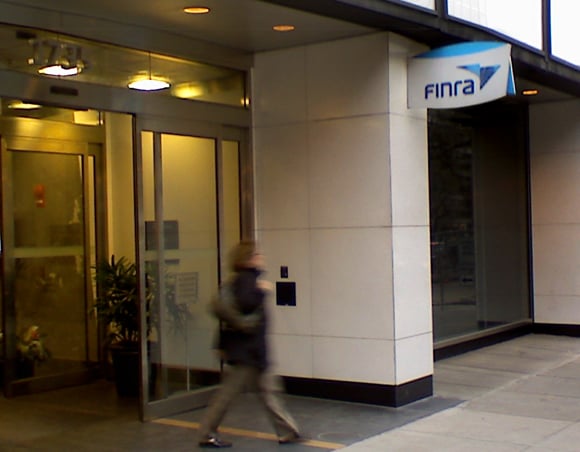UBS AG, Switzerland's biggest bank, will pay $12 million to resolve Financial Industry Regulatory Authority claims that a brokerage unit allowed millions of short-sale orders to be placed without reasonable grounds to believe that the securities could be delivered.
UBS AG, Switzerland’s biggest bank, will pay $12 million to resolve Financial Industry Regulatory Authority claims that a brokerage unit allowed millions of short-sale orders to be placed without reasonable grounds to believe that the securities could be delivered.
The supervisory system for locating and marking orders at UBS Securities LLC was “significantly flawed” and contributed to violations across its equities-trading business, Washington- based Finra said in a statement today. The company’s framework wasn’t designed for regulatory compliance until at least 2009, the industry-funded brokerage watchdog said.
In a short sale, an investor sells a security it doesn’t own, betting the price will decline before it’s time to deliver the shares. Under a rule known as Reg SHO, brokers can only accept short-sale orders when they can reasonably ensure the shares needed to cover the bets will be available to the investor at the time of delivery.
“Firms must ensure their trading and supervisory systems are designed to prevent the release of short-sale orders without valid locates, and properly mark sale orders, in order to prevent potentially abusive naked short selling,” Brad Bennett, Finra’s head of enforcement, said in the regulator’s statement. “The duration, scope and volume of UBS’s locate and order- marking violations created a potential harm to the integrity of the market.”
In settling the claims, UBS consented to the findings without admitting or denying wrongdoing, Finra said.
Substantial Investment
“UBS made a substantial investment to upgrade systems and procedures, including supervisory protocols, IT change control processes, and compliance programs to tighten its Reg SHO controls,” Christiaan Brakman, a spokesman for the Zurich-based bank, said in an e-mailed statement. “This investigation is concluded and all issues identified by Finra and UBS have been remediated.”
The bank’s internal controls came under scrutiny last month after Kweku Adoboli, a trader who worked on the exchange-traded funds desk in London, was arrested for allegedly racking up $2.3 billion in losses from unauthorized trading. Adoboli, who has been in custody since his Sept. 15 arrest, is expected to enter a plea on the accusations at a Nov. 22 hearing.
Sergio Ermotti, who was appointed interim chief executive officer after Oswald Gruebel left the post following news of Adoboli’s trades, said in a memo to employees this month that while the bank’s internal systems had detected “unauthorized or unexplained” activity, it wasn’t “sufficiently” probed and controls weren’t enforced.
The bank said today it filed a document to the U.S. Securities and Exchange Commission, stating that management has determined its internal controls weren’t effective on Dec. 31, 2010. UBS has taken and continues to implement measures to address the deficiencies, it said.
--Bloomberg News--







